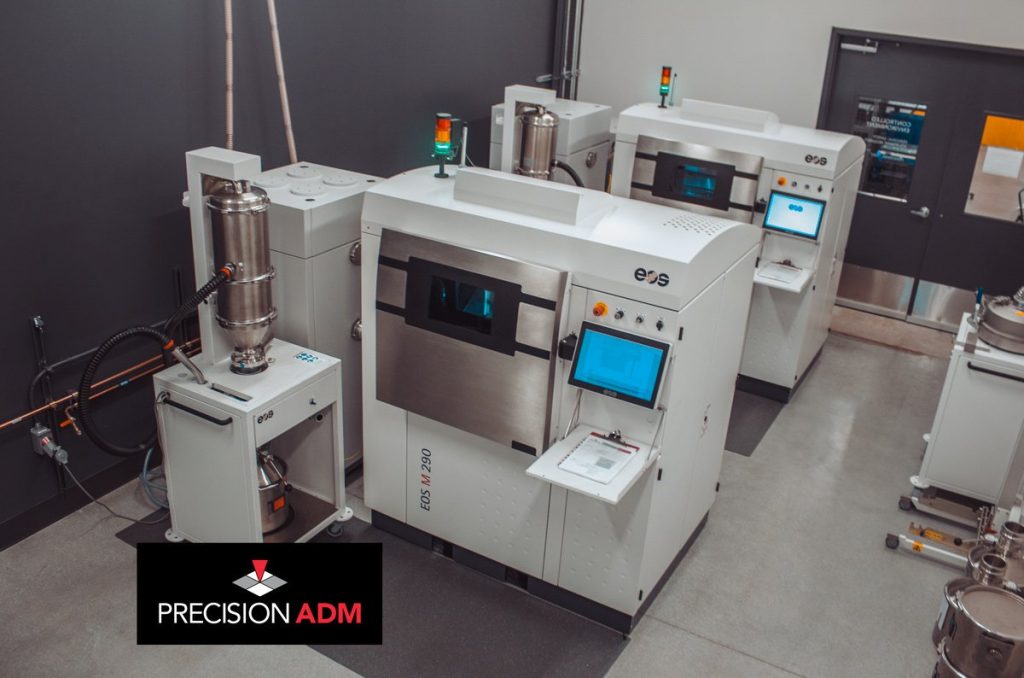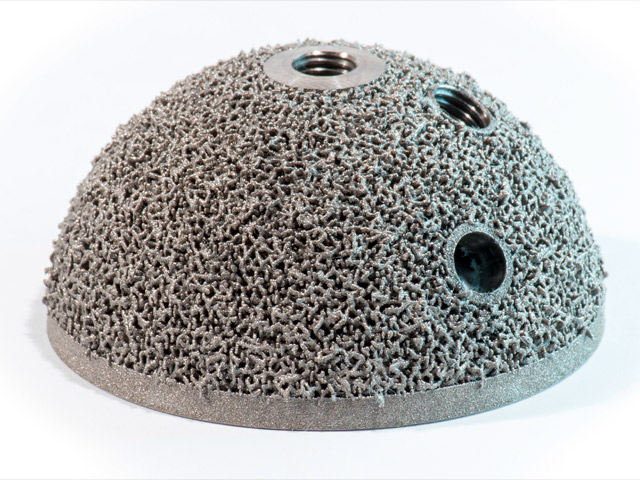Canadian advanced manufacturing service bureau Precision ADM, based in Winnipeg, Manitoba, has completed a Validation Master Plan for additive manufacturing.
Compiled with the help of Additive Minds, the consultancy branch of leading additive manufacturing provider EOS, the plan and a supporting white paper has been developed for the company’s M290 3D printers.
“We recognize the importance of applying quality metrics to the Direct Metal Laser Sintering (DMLS) process,” says Martin Petrak, CEO of Precision ADM.
“EOS Additive Minds and their great expertise helped us to overcome the challenges of validation in AM,”
“Together we analyzed the potential risks and we have invested in designing and completing a robust end-to-end validation of our metal additive process, so that we can assure our customers of reliable, repeatable manufacturing results.”
DMLS expertise
Precision ADM’s additive manufacturing expertise is in direct metal laser sintering (DMLS). This service is performed at the company by a fleet of EOS M 290 machines and a quad-laser EOS M 400-4.
At the facility, DMLS is coupled with design, testing and multi-axis machining services, covering all key application markets: medical, aerospace, industrial and defense.
For medical in particular, Precision ADM has machines dedicated to 3D printing using cobalt chrome and titanium. As of October 2017, Precision ADM’s medical manufacturing system is also ISO certified, ensuring the quality of 3D print “non-active” orthopedic implants and non-implantable instruments.

Meeting medical and aerospace standards
The Validation Master Plan created by Precision ADM and Additive Minds is specifically for the facility’s titanium additive manufacturing lines. Accordingly, the plan outlines comprehensive testing for “validating mechanical, metallurgical, and chemical properties of specified standard reference parts” to drive quality control.
In the course of its completion, over 5,000 data points were collected. Through analysis, the facility now has standard validation procedure in place for: Installation Qualification, Operational Qualification and Baseline Performance Qualification.
All points of the Validation Master Plan have also been made to align with standards respective to certain industries.
By satisfying FDA 21 CFR 820 and ISO 13485 standards, Precision ADM moves toward FDA and ISO certification of 3D printed medical implants. And by meeting AS 9100 requirements, the plan is fulfilling aerospace industry standards.
Michael Kowal, Application Development Consultant for EOS Additive Minds, comments “Precision ADM now has the production capabilities and the documentation in place so that a medical or aerospace customer can focus on their final part, having confidence that they will get high-quality parts that fulfill all current industry regulations.”

Keep up with additive manufacturing standards – subscribe to the 3D Printing Industry newsletter, follow us on Twitter, and like us on Facebook. Post a vacancy or find your next career move on 3D Printing Jobs.
Featured image shows the Validation Master Plan. Photo via Precision ADM



